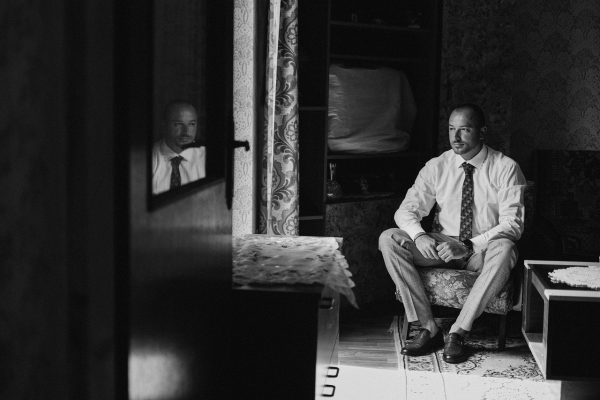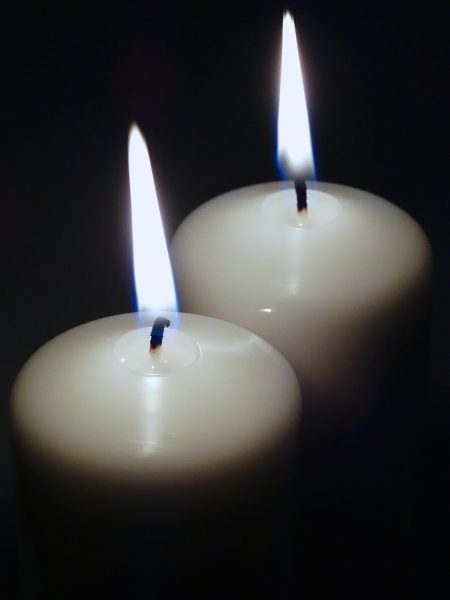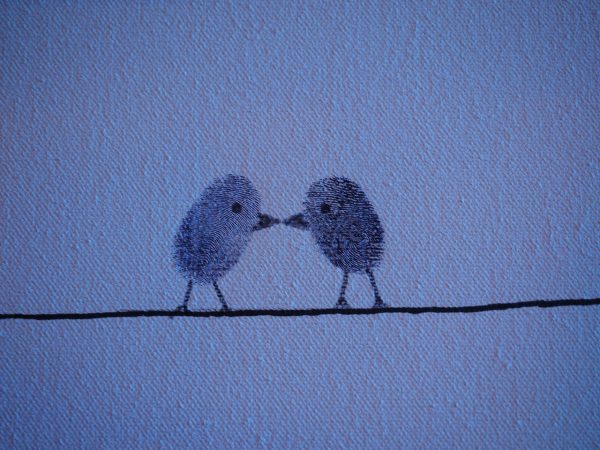
 Being Vulnerable in Relationships
Being Vulnerable in Relationships
Many people fear vulnerability in relationships, and with good reason. It can be scary sharing the darker parts of us, and the exposure could be perceived as an act of shame. This fear could come from having to surrender a sense of control and not knowing what is on the other side. People are hesitant to be vulnerable with their partners the same way they are afraid of the dark. The fear of the unknown and expecting the worst possible outcome. Instead, these darker parts of us should be embraced, hopefully leading to personal growth and positive experiences. While progress has been made to fulfill these current ideologies, this is not always the case. There was a time when vulnerability in relationships wasn’t always accepted, and perfection was the ideal portrayal of love from each partner.
“True love goes beyond the façade of perfection; it ventures into the realm of authenticity.”
-Dr. Phyllis Morean
Marriage in the 1950s and 60s

Within the 1950s and 1960s, America experienced large cultural shifts that lead towards the growing ideology of marriage being the cornerstone of society. The wives were homemakers, and primarily responsible for childcare and managing the household. Husbands were expected to be breadwinners, providing financial support for their families. This is known as the Nuclear Family. This lifestyle was ideal for living a fulfilling life and was presented in a simplified fashion. Simply find someone to marry, have children, and raise them in the suburbs. However, not everyone wanted to follow this path, they just felt like they had to due to societal pressures at the time. While this aspect of love was celebrated at the time, vulnerability in a marriage was often suppressed. Men were expected to be an image of strength and control and weren’t encouraged to express their emotions. While women on the other hand had the more traditional roles of being nurturing and emotional, they still had very high expectations put on them to be perfect mothers and wives. While the focus was on marital happiness, individual emotional needs on both sides were sometimes overlooked. There was an emphasis on perfection, which led to dissatisfaction and lack of communication within the relationship.
“Love, in its truest form, is the profound meeting of two souls that embrace the dark and the light within each other.”
-Dr. Phyllis Moreau
The Sexual Revolution of the 1960s and 70s
The Sexual Revolution, often associated with the 1960s and 70s, was influenced by changing social norms, the introduction of the oral contraceptive pill, and a growing desire for sexual liberation, particularly among women and marginalized groups. This era saw an embrace of nontraditional sexual practices and a challenge to established moral standards. This was a period of significant shifts in attitudes towards marriage and family structures that were once ideal in previous decades. The sexual revolution challenged traditional notions of the nuclear family by promoting sexual freedom, questioning gender roles, and encouraging diverse relationship struggles.
With this freedom of expression amongst both men and women, there was more freedom to display their emotional needs. Being vulnerable with a partner was more embraced, rather than being restricted. While the sexual revolution came with many criticisms, there was a profound and lasting impact on society. It leads to greater freedom, choice, and equality for individuals.

The Power of Vulnerability
Vulnerability is an act of courage; it’s the brave act of keeping our heart open when it would feel safer to close off completely. Being affected by another person while also being authentically yourself is at the heart of being vulnerable in a relationship. It’s a way of sharing your inner experience with someone else while also allowing yourself to be affected by their inner experience.
When we share our darkest thoughts, when we reveal the parts of ourselves, we’re most ashamed of, and they still choose us as a partner, it’s an act of rebellion against a world that prizes only the idealized, the “filtered” versions of people. Now, views toward love can have a much deeper meaning.
Some theorists suggest that people may be attracted to darkness because it allows them to feel safe expressing their “shadow self”, the parts of their personality they might hide from others. Further emphasizing the deeper level of connection.
“Love doesn’t demand perfection… it thrives in imperfection”
-PebbeleGalaxy
Some potential concerns with love and relationships pertaining to darkness include finding connection and vulnerability can be positive and overly focusing on “dark” aspects can lead to unhealthy dynamics, codependency or enabling destructive behaviors within a relationship. There are pros and cons while observing the whole concept of love. There is a constant evolution of the term, lifestyle, goals associated with it, and overall expectations.
People may struggle to let go and be vulnerable with their partners due to fear. While there are risks associated with being vulnerable, it’s also a risk not to be vulnerable. Closing ourselves off, holding the other person at arm’s length, often feels like a safer choice in the short term. However, relationships cannot thrive without openness and vulnerability. When we refuse to be vulnerable, we close off the very flow of energy that we would sustain over time.
Who is Jess O’Reilly? aka: Dr. Jess
Dr. Jess O’Reilly is a Toronto-based sexologist, author and television personality. Dr. Jess also volunteers with students, teachers and social service organizations to empower young people to embrace healthy, happy relationships. Her training includes courses in counseling skills, healthy relationships, resolving sexual concerns, sex education, clinical sexology, sexual development, sex and disability, group therapy and Cognitive Behavioral Therapy.

Interview Questions
Coral Candelario: How would you define vulnerability as it pertains to relationships? Since there could be various perspectives.
Dr. Jess: Vulnerability often refers to emotional exposure – the sharing fears, insecurities, or needs without certainty of how someone will respond.
Dr. Jess: Oftentimes, vulnerability involves expressing how you feel or what you need with reference to uncomfortable feelings.
CC: What advice would you give to someone who wants to be vulnerable with their partner, but isn’t sure where to start?
Dr. Jess: Start with yourself. Are you open to admitting how you feel when the feelings are uncomfortable? Do you go straight to sad or mad and bypass other feelings like fear, hopelessness, jealousy, uncertainty insecurity, etc.? If you can start my acknowledging how you’re feeling on your own (e.g. how does it feeling your body). You’ll likely be more comfortable opening up about how you feel to a partner. You can start slowly, by simply sharing what you want, how you’re feeling, and you’re thinking.
CC: How can vulnerability and authenticity lead to a more fulfilling relationship?
Dr. Jess: In relationships, vulnerability invites authenticity, trust, and emotional closeness. Theoretically, making a safe space for vulnerability creates more safety and honesty. Being vulnerable in a safe partnership can also deepen intimacy.
CC: How can couples accept flaws amongst one another without toxicity?
Dr. Jess: Normalize uncomfortable feelings (e.g. jealousy, insecurity, fear) as part of the full human experience. Feelings don’t define you and they’re always shifting and evolving – they’re not fixed. Practice emotional humility with the understanding that perfection doesn’t exist. And show compassion with yourself and with your partner. Approach conversations and interactions with curiosity as opposed to judgement. Offer reassurance with care – start with yourself (it can’t be solely your partner’s job) and ask when you need additional support.
